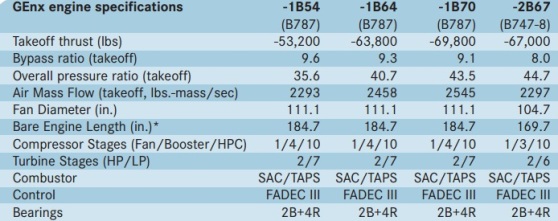The GEnx engine is the fastest-selling high-thrust engine in GE’s history. An engine that also powers the Boeing 787, the GEnx has received more than 1,400 orders to date with a list price of over $20 billion.
Based on proven GE90 architecture, the GEnx engine succeeds GE’s CF6 engine. Compared to the CF6 engine, the GEnx will offer up to 15 percent improved fuel efficiency, which translates to 15 percent less CO2. The GEnx’s innovative twin-annular pre-swirl (TAPS) combustor will dramatically reduce NOx gases as much as 60 percent below today’s regulatory limits and other regulated gases as much as 90 percent. Based on the ratio of decibels to pounds of thrust, the GEnx will be the quietest engine GE has produced due to the large, more efficient fan blades that operate at slower tip speed, resulting in about 30 percent lower noise levels. The GEnx will be the world’s only jet engine with both a front fan case and fan blades made of carbon fiber composites.
